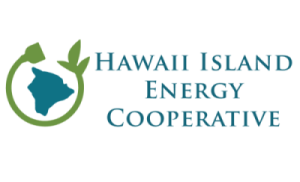I cringed when I saw this morning’s Hawaii Tribune-Herald article NextEra Adviser: Co-ops Not Cost-Effective. Now NextEra, the company hoping to acquire Hawaii Electric Industries (HEI), has a Massachusetts-based spokesman speaking for it.
NextEra says it’s sensitive to Hawai‘i, but this spokesman is from Massachusetts. It’s exactly what many of us are wary of – mainland advisors with no idea of the complexity of the issues. The NextEra spokesman didn’t even seem to know that the Big Island has an abundance of natural resources quite different from what’s available on the mainland.
NextEra says if it purchases HEI in its proposed $4.3 billion deal, it would let us have an advisory board – but that doesn’t really mean anything. An advisory board wouldn’t have any power. It would be the same thing as a representative to Congress back in the Territorial days.
NextEra would be investor-owned, which means its goal would be to make money for it investors and shareholders. That would be the priority. If it benefits the Hawai‘i ratepayer at all, that would be incidental.
Contrast that with the co-op, which is non-profit and it is not taxed (that savings is returned to the ratepayers). Right there, even without making any other changes, a co-op already saves money compared to an investor-owned utility because it pays no taxes.
The co-op is not going to tell you exactly what it is going to do. We are going to set the framework so we and future generations will always be equipped to make decisions and do what is best as conditions change. There’s no way we can know now what the future holds.
Co-ops have a nine-member board of directors, with each member having a staggered term. Every year, three positions come up for election. This keeps it sensitive to what’s going on in the community. The co-op’s board structure is a self-correcting mechanism that is responsive to what the people are thinking as attitudes change over time. You don’t see that in a powerful company that’s located far away.
A company like NextEra tells you what it’s going to do and then locks it in – because that’s how it makes money for its investors. Not because it works for the local community, or saves money for ratepayers.
Keep in mind, it’s not the biggest or the strongest that survive; it’s the ones that can adapt to change. NextEra is by far the biggest (but so were the dinosaurs, and they’re not around anymore).
Hawaii Island Energy Cooperative is big enough (it will be part of a 900-member cooperative association with its own, healthy, financial institution) and it’s about adapting. It’s about doing what we have the opportunity to do for the Big Island right now – changing our energy utility to a cooperative model – so we, and future generations, can adapt to changing conditions as needed, and survive and thrive.

